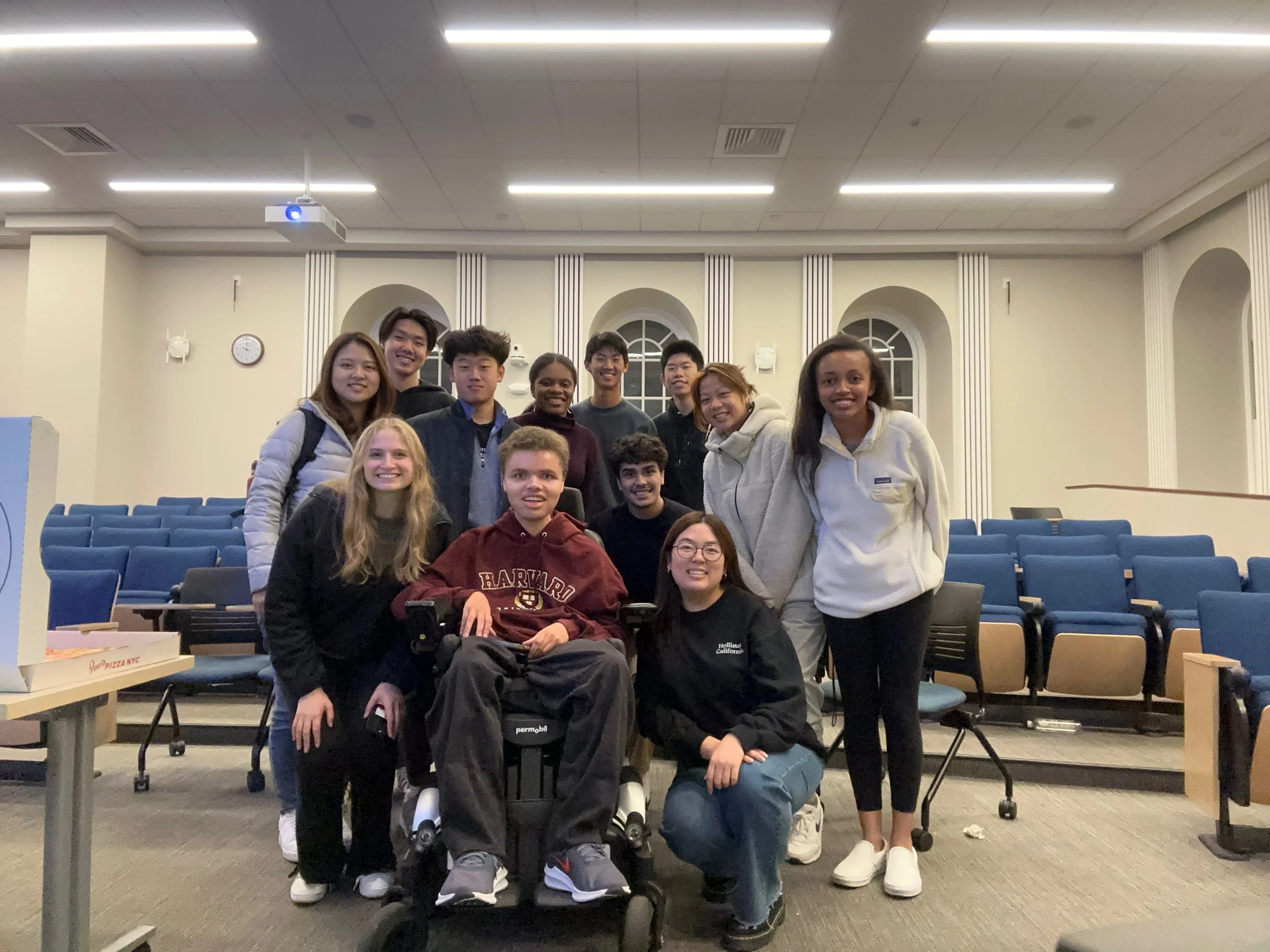Public Health Stewardship during COVID-19: A Framework for Policy Progress beyond Healthcare Rights Rhetoric
Richard J. Lu, Maximilian J. Pany, & Edwin Palmer
On the eve of the final Democratic Party Presidential debate, and before the dawn of a viral pandemic that would catastrophically disrupt American life, Senator Bernie Sanders tweeted a familiar message: “healthcare is a human right.” With over 125,000 lives lost to coronavirus in the months since then, disproportionately affecting poor and minority communities, the need for adequate healthcare access has never felt more pressing. And yet, there is an impasse.
Senator Sanders used this final debate to reemphasize his signature Medicare for All plan, a bill that sought to increase healthcare access by guaranteeing government-sponsored health insurance for all Americans. Ever since Senator Sanders announced his plan, however, opposing lawmakers have bashed the idea, asserting that it would cripple the economy, cause millions to lose their health coverage and “turn America into a socialist country.”
These opposing viewpoints reflect a core paradox underlying our contemporary healthcare rights debate. For years, we have been confronted with a deeply polarized, intractable battle between the universal right to obtain healthcare and the right to choose the nature of our healthcare access. For some, the idea of healthcare as a right is so fundamentally intertwined with the pursuit of an unalienable right to life that it seems perplexing how American society has not yet resolved this perceived moral shortcoming. For others, enshrining a right to healthcare implies an automatic infringement on other basic liberties, including freedom from government coercion.
Our distinctly American rights rhetoric is fundamentally incapable of capturing the nuances and trade-offs inherent to navigating health policy. Instead, we offer an alternative emphasis on healthcare stewardship to achieve policy progress — a goal that has never been more urgent than now, when epidemiologists, economists, policymakers, and others in the community must come together to guide the future of our country’s health.
The American Rights Dialect
In 1991, legal scholar Mary Ann Glendon observed what she described as a “uniquely American” dialect of rights. Namely, rights in America are posited as absolute, inviolable truths that exist without limits or rights-bearer responsibilities, and consequently without regard to overall societal welfare or resource constraints. When we invoke the rhetoric of rights, we draw upon the founding ethos of this nation to claim that certain rights are so uncompromisingly important that invoking them is sufficient to win any argument: how dare anyone question my right to choose my healthcare, my physician, or my health plan?
Moreover, our rights rhetoric is limited by its exclusion of personal responsibility: my rights define responsibilities and duties for others around me to protect my freedoms, but they do not demand any explicit reciprocity. At its core, the rights framework in America is individualistic. Much of healthcare, however, is an inherently community-level intervention. Because a functioning healthcare system requires close collaboration at multiple levels among patients, providers, and payers, a narrow focus on individual needs is woefully inadequate in representing the responsibilities of individuals to maintain such a system. Nevertheless, the rights rhetoric in the American political dialogue persists — with a resultant health policy stalemate.
Beyond Rights: The Language of Stewardship
Whereas the language of rights considers the individual as the end object of moral responsibility, a language of stewardship conceptualizes the individual as the origin, capable of protecting moral values beyond oneself. Moreover, while a language of rights can foster feelings of unfairness where winner takes all, a language of stewardship encourages a coordinated effort that lets us realize short-term individual tradeoffs we are willing to make in order to achieve longer-term societal good.
Stewardship originates from the old English concept of a kingdom guardian, with duties and responsibilities defined to protect the needs of a greater order. The idea of stewardship is not new to medicine; in 1996, Drs. John McGowan and Dale Gerding created the concept of antimicrobial stewardship to define a physician’s role in mitigating bacterial drug-resistance.
This language of healthcare stewardship should be expanded beyond medical professionals and embraced in our health policy dialogue. In a health system that currently leaves many behind, we must interrogate our responsibilities — as physicians, as policymakers, as citizens, and as members of our shared communities — because ultimately, we help the vulnerable, not because we have an obligation to fulfill their rights, but because our lives are poorer when we fail to do so.
Bridging the Divide – COVID-19 Stewardship
Throughout the COVID-19 pandemic, our American rhetoric of rights has continued to seep into the public health discourse. For instance, the “right” to refuse wearing face-masks — a method shown to reduce viral spread — has become a symbolic stand against government infringement upon civil liberties.
As COVID-19 cases have surged in June and July, there has been growing urgency to reframe the public health discourse around collective unity. Dr. Anthony Fauci remarked in a press conference on June 26th that as Americans, “you have an individual responsibility to yourself, but you have a societal responsibility.” Drawing upon language of stewardship, he further advised that “a risk to you is not just isolated to you, because if you get infected, you are part of propagating the process of a pandemic … ultimately infecting someone who is vulnerable.” The language of stewardship offered Americans a path to be part of the COVID-19 solution: a feat that the language of rights was unable to achieve.
Two days later, Vice President Mike Pence, wearing a mask himself, called upon Texans to follow physical distancing guidelines and wear masks to reduce the risk of viral spread. This statement would have seemed unthinkable one week earlier, as the White House had spent months downplaying the importance of mask-wearing, even supporting people’s right to “do what they want” with masks during a Presidential rally in Tulsa, Oklahoma.
With an emphasis on stewardship rather than our divisive rights dialogue, a shared empathy for recognizing inadequacy and injustice can be nurtured from unlikely allies. Only together can we communicate with a common creed to drive toward a society that prioritizes access and choice of care, respects the needs of individuals, and ensures the safety of our most vulnerable populations.
About the Authors
Richard J. Lu, MBA, Harvard Medical School, richard_lu@hms.harvard.edu.
Maximilian J. Pany, BA, Harvard Business School.
Edwin Palmer, MD MPH, Boston Children's Hospital.










Dr. Rose Molina is a board-certified Obstetrician-Gynecologist at The Dimock Center and Beth Israel Deaconess Medical Center. Dr. Molina holds a Master of Public Health in Clinical Effectiveness from the Harvard T.H. Chan School of Public Health, and is an Assistant Professor of Obstetrics, Gynecology, and Reproductive Biology at Harvard Medical School, where she is also the Faculty Director of the Medical Language Program and Health Equity Societal Theme. Additionally, Dr. Molina is a member of Ariadne Labs where she works to improve quality and equity in pregnancy care worldwide. As an AHRQ Learning Health Systems K12 scholar, she leads research on language barriers in pregnancy care and improving patient-clinician trust.